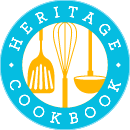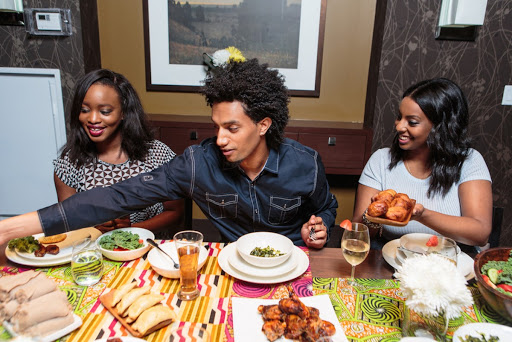Foodies are as diverse as their culinary preferences. The thought or sight of a particular recipe could be mouthwatering for some while being completely off-putting to another. The pairing or absence of certain ingredients could make others scoff at a dish.
Knowing how foodies like to enjoy their foods is vital if you want to make a cookbook. You have to understand your audience- the people who will read your book.
Doing so can help you align recipes towards the folks who will be most receptive to your work. This piece will highlight different foodie profiles and a few simple ways you can cater your recipe book to them.
Making a Recipe Book for Your Audience
Whether you’re making a cookbook for the public or a custom recipe book for your family, you’re crafting your work for an audience. That means real people with wildly varying tastes in food and different levels of culinary skills.
Of course, you can’t make everyone happy. Nevertheless, you need to understand the core group of people you’re writing your cookbook for to create something they’ll find valuable. Laura Gladwin, an editor for Food and Drink magazine, likens this to how authors tailor their books to suit a certain type of reader.
“Just as fiction authors will create a profile of their ‘ideal reader,’” she says, “you will want to answer some key questions about the kind of person who will enjoy your book most — your typical reader.”
She’s even made suggestions on questions you can ask when trying to figure out your audience including:
- How good of a cook are they?
- Where do they buy their food?
- What kind of dishes do they like?
- What might they be put off by?
- How willing are they to take risks?
- How often do they cook for friends?
- Are they more interested in eating healthily, or impressing people, or getting food on the table as quickly as possible?
- What other cookbooks do they have on their shelf?
By asking these essential questions, you will develop a better understanding of who your audience is and how you should present your cookbook to them. If you’re making a custom cookbook for your family, many of these questions will be fairly easy to answer.
If you’re making a cookbook for others, you will want to speak to them to get a sense of what their food preferences are. You can also look to social media for answers as well, by looking at trending posts and comments/reactions on foodie accounts to see what subscribers and followers are into.
It will be helpful for you to know some popular foodie distinctions when you write a recipe book that resonates with a key audience.
An Example of Foodie Groups for Cookbook Makers to Consider
- Locavore – They only eat foods that are locally produced.
- Clean Eater – They focus on foods that are free of preservatives.
- Low Carbon Eater – They consume foods that have been produced with little greenhouse gas emissions.
- Meat Eater – They consume predominantly red and white meat, eggs, fish, seafood, fowl and dairy.
- Lacto-Ovo Vegetarian – They don’t eat meat, fish, fowl or eggs but will consume dairy and egg products.
- Ovo Vegetarian – They don’t eat meat, fish, fowl or dairy but they will eat eggs.
- Lacto Vegetarian – They don’t eat meat, fish, fowl or eggs but they do consume dairy.
- Vegan – They don’t eat any foods produced by animals.
- Pollotarian – They don’t eat red meat, fish or seafood, but they do eat poultry and fowl.
- Flexitarian – They eat predominantly vegetarian meals but will occasionally eat meat.
- Pescatarian – They don’t eat red meat or poultry but they will eat fish and seafood.
And then there are foodies based on their personalities such as:
- The Food Snob – They are very particular about the authenticity of what they eat, who makes it and whether it has “real” ingredients.
- The Daredevil Foodie – These are the foodies with the “try everything once” mentality. They will undertake the outrageous food challenges, even those that may lead to temporary discomfort (ie. eating ghost peppers).
- Organivores – These foodies insist that everything they eat is organic.
- Fitbit Foodie – These foodies count every calorie and choose many of their foods based on their nutritional content.
As you can see from the list above, our eating preferences vary tremendously. Many of your friends and family members may fall into one or more of these categories, opening up opportunities for you to create a custom recipe book for them.
Tap Into Your Audience’s Foodie Presence
Once you understand your audience’s culinary tastes and preferences, you can start to plan your custom recipe book to match their interests. That means writing a cookbook that appeals not only to their diet but also, their personality traits, cultural interests and more. The more you tap into their lifestyle (not just dietary choices), the deeper you will connect with them.
Cooking Up the Perfect Recipe for Audience Connection
- Cater to them By Creating a Theme – This is a no-brainer – if you’re appealing to pescatarians, then you should create a cookbook that’s all about seafood and fish foods. If you’re catering to organivores, then your recipes should probably contain suggestions on where readers can purchase organic ingredients.
- Highlight their Preferences in Your Recipes – Remember, certain foodies are more about personality, meaning they used specific lingo and have certain attitudes. You can tap into this by making references to pop culture or using certain slang. But do this sparingly so that your book doesn’t sound cringe!
- Help them Solve Their Culinary Problems – Ultimately, your cookbook has to serve a purpose, and that’s to help people cook the meals they enjoy. For many people, they just can’t seem to get a recipe right. If you can simplify a difficult recipe, you will become the hero for many chefs without having to resort to flashy designs.
Your Audience is the Spice of Your Cookbook
If your cookbook doesn’t appeal to a dedicated audience, it will collect dust or remain unviewed no matter how pretty it is. Cookbooks are supposed to make the art of cooking relatable to people of all ages, backgrounds, and experiences. You can only do this by getting a more intimate understanding of them. The effort you make to do so will enable you to write a cookbook that readers will thank you for!
Ready to turn your recipes into something memorable? Click here to get started!

